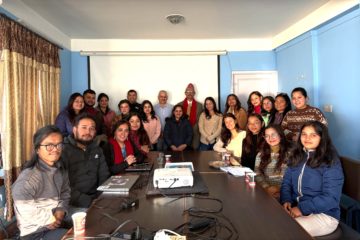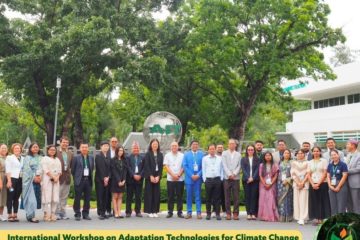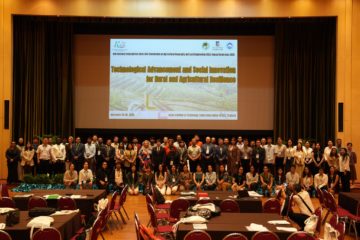Biodiversity Hackathon 2019
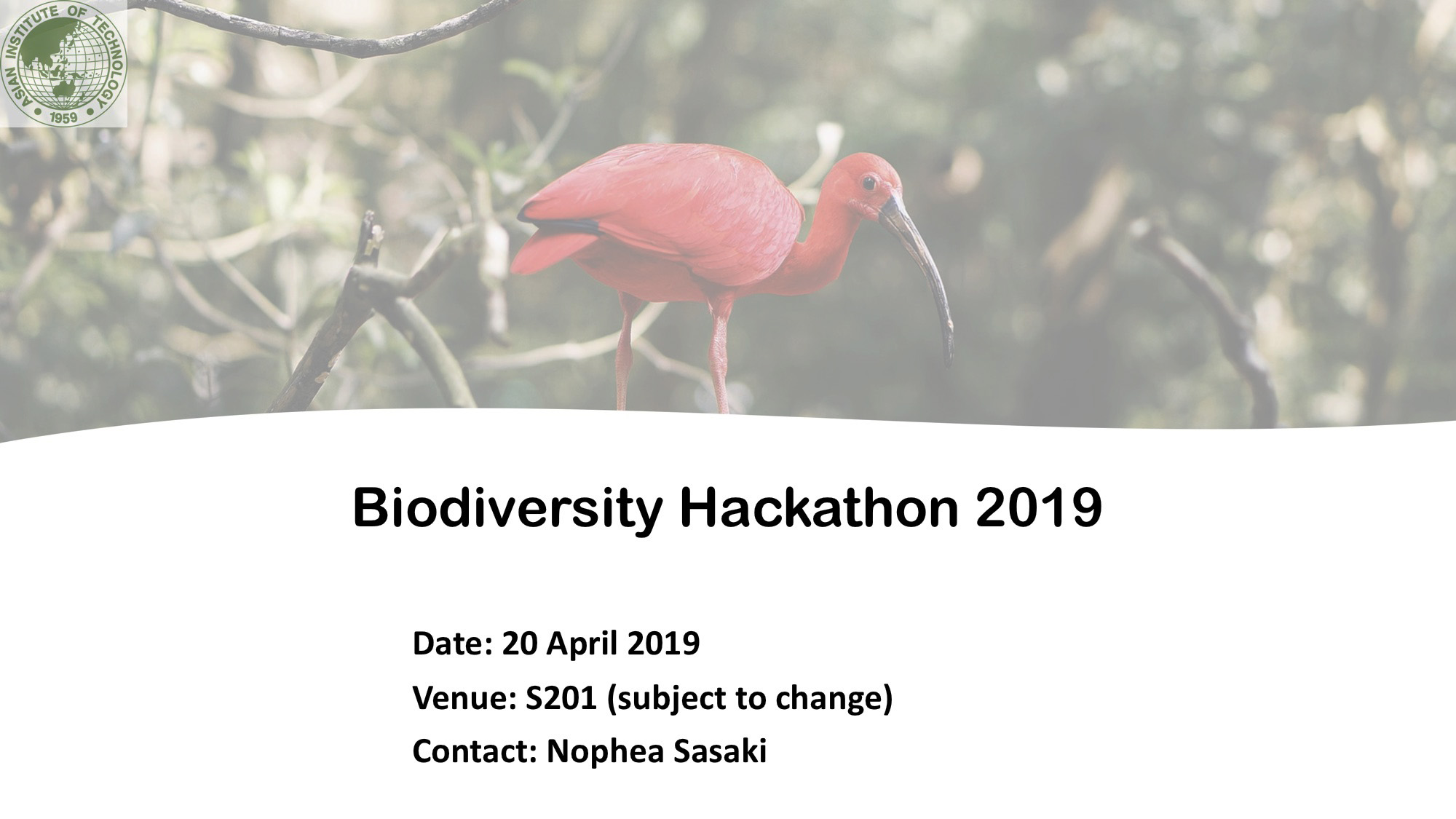
Date: 20 April 2019
Venue: S201 (subject to change)
Contact: Dr.Nophea Sasaki
Apply: http://bit.ly/2GmnY4M
Brief Background
- Many fauna and flora species on earth play important roles in ecosystem functioning and services but conventional conservation would not achieve the maximum benefits that these species could potentially provide. With opportunities and markets created by the UN’s Sustainable Development Goals (SDGs) and impact investments along with increasing available technologies, there are potential solutions for biodiversity conservation but Innovation Solutions are needed to make utmost use of technologies and to generate maximum yet sustainable benefits for biodiversity conservation and local livelihood improvement. Can we do that? Join us on 20 April 2019. We can accept 4 more teams (2-3 members each). Small prizes for the winning teams will be provided.
- Biodiversity Hackathon aims to propose and design innovative solutions for biodiversity conservation. Biodiversity Hackathon is a tool for crowdsourcing ground-up innovation for biodiversity conservation.
Programme
| Time | ||
| 8:00 | Registration and team formation | |
| 9:00 – 9:05 | Introduction by Dr.Nophea Sasaki | |
| 9:05 – 9:15 | Judge Introduction by Individual Judges | |
| 9:15 – 9:30 | Rules and Challenges for Hackathon – Dr.Nophea Sasaki | |
| Hack Part 1 | Formulation of problems, development of technology platform | |
| Lunch Break – Sandwiches coffees are provided | ||
| Hack Part 2 | Development of tech platform and pitch deck preparation | |
| 15:30 – 16:00 | Pitch Deck Submission | |
| 16:00 – 17:00 | Pitching | |
| 17:30 | Winners Announcement and Prizes | |
| 18:00 | Closing Remarks by Prof.Rajendra P. Shrestha, Dean of SERD |
Challenges to Hack
- Increasing impact investment for rural tree planting has created opportunities for forest ecosystem restoration. However, rural population has no connection to financial means, while impact investors want to ensure that their money is used for tree planting by rural people. What is the long-term solution to this problem?
- City Parks are important for recreational purposes and air pollution control. Parks can also serve as habitats for certain wildlife species. As urbanization expanded, such parks gradually disappear. What is the solution to this problem?
- Various species maintain ecosystem functions and provide ecosystem services to rural communities but their utilization is not optimized due to lack of market and user connection. What is the solution to this problem?
Attachment: BioHackathon.pdf
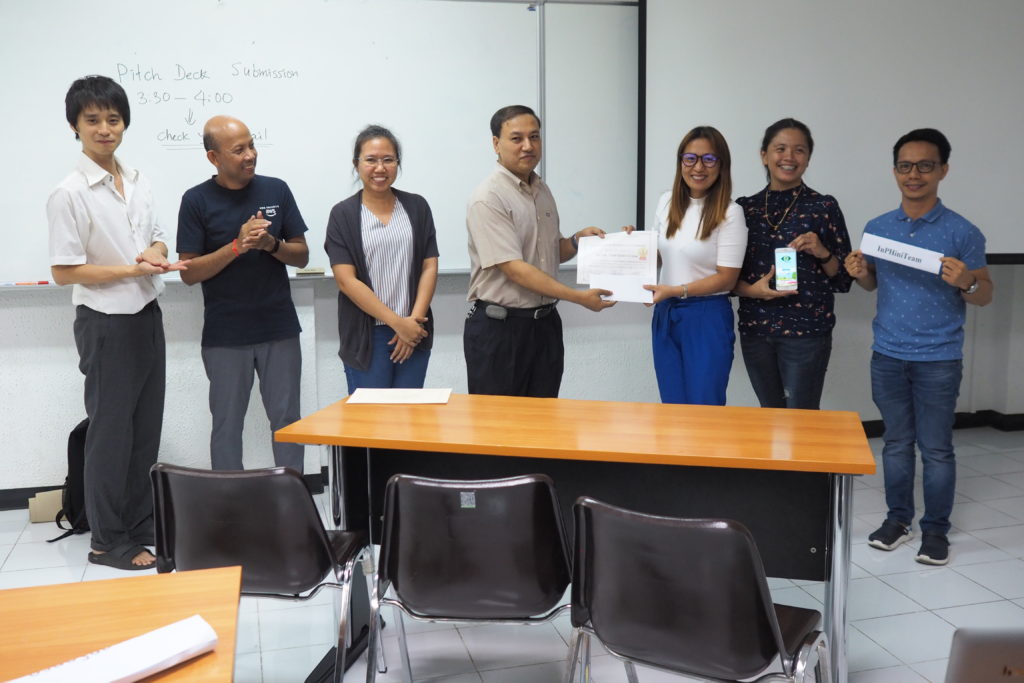
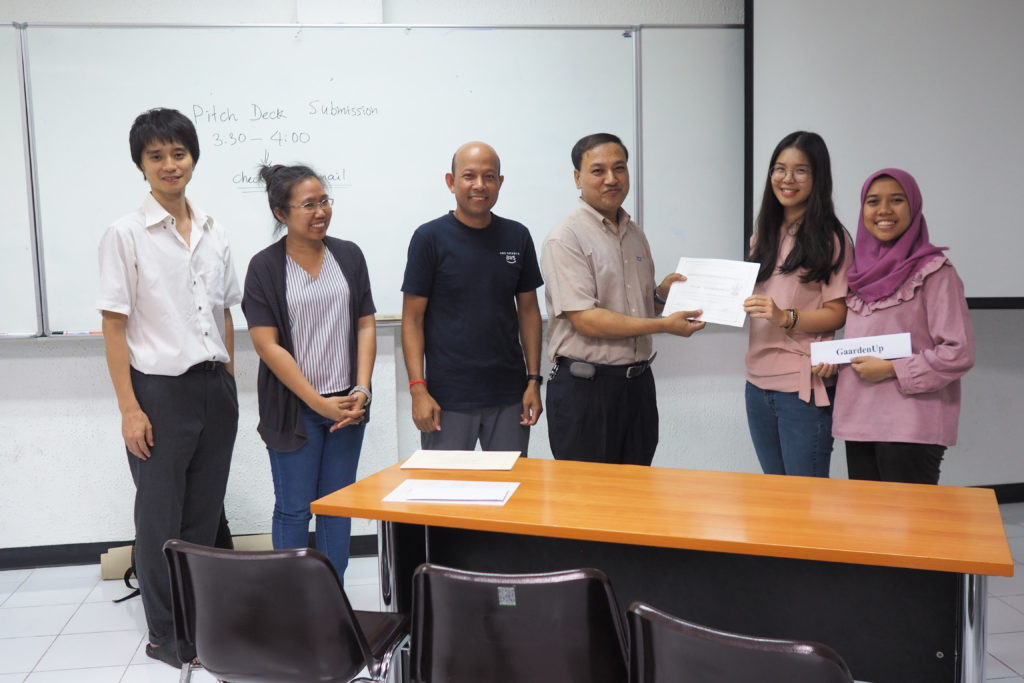
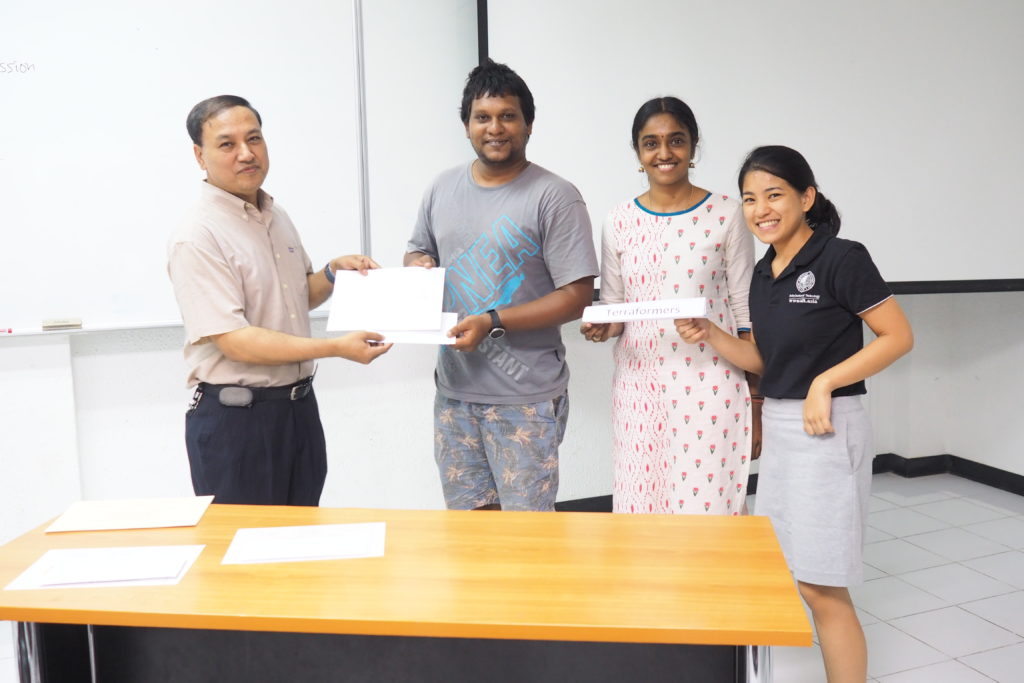

Dr.Nophea – The Jury 
Dr.Manju – Moderator 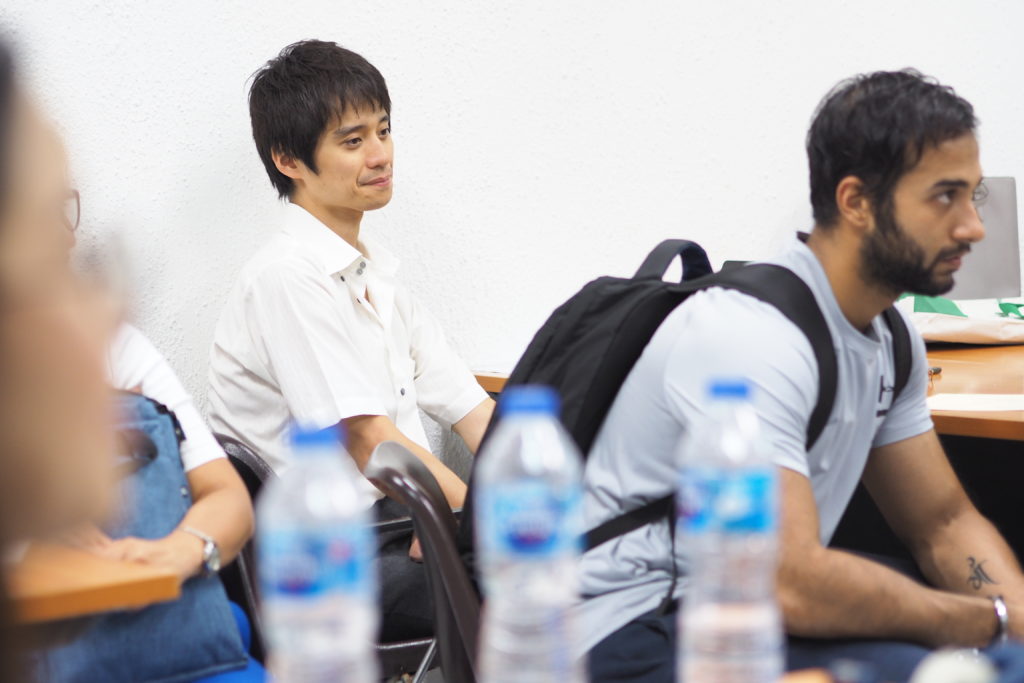
Dr.Takuji – The Jury 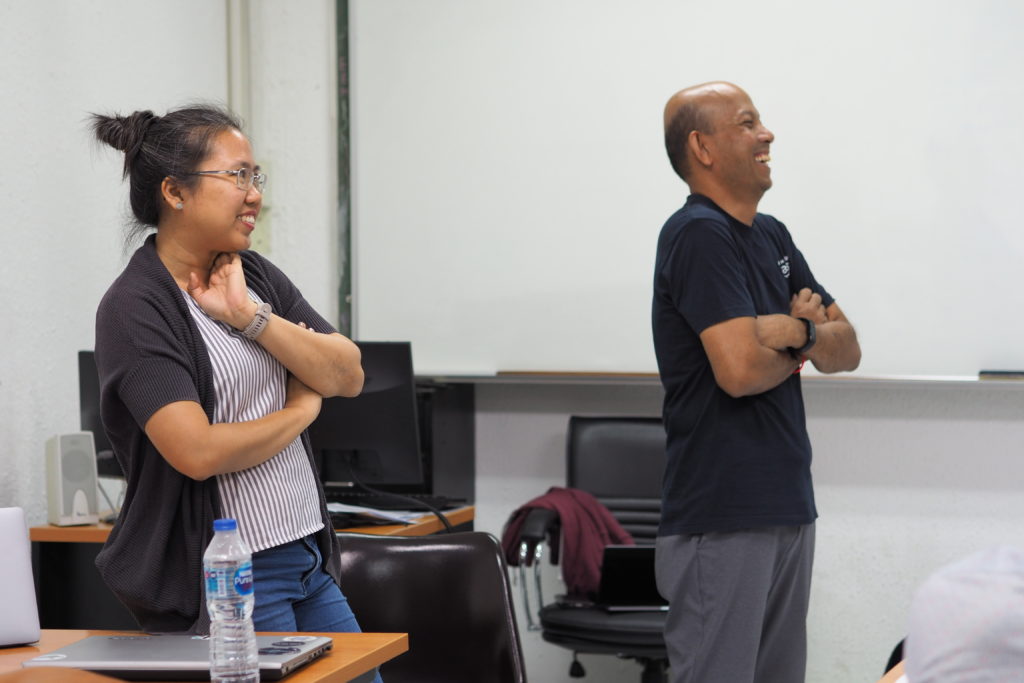
Ms.Ladaporn – The Jury 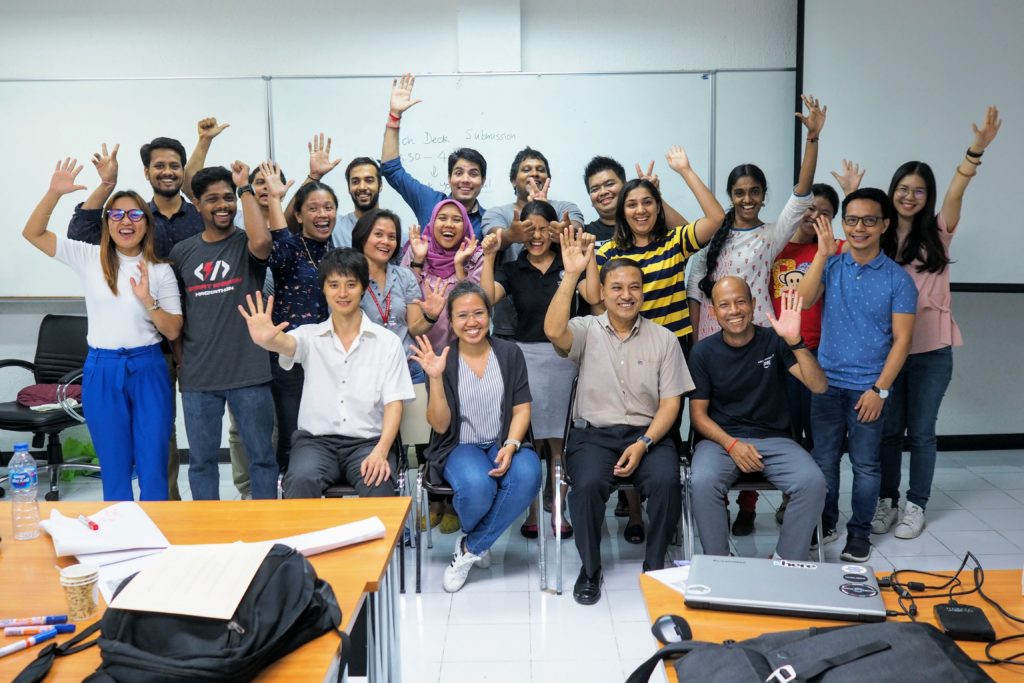
Biodiversity Hackathon 2019 – Group Photo 
InPHiniTeam – 1st Winner 
Garden Up Team – 2nd Winner 
Terraformers Team – 3rd Winner
See more event pictures go to DDS Facesbook
